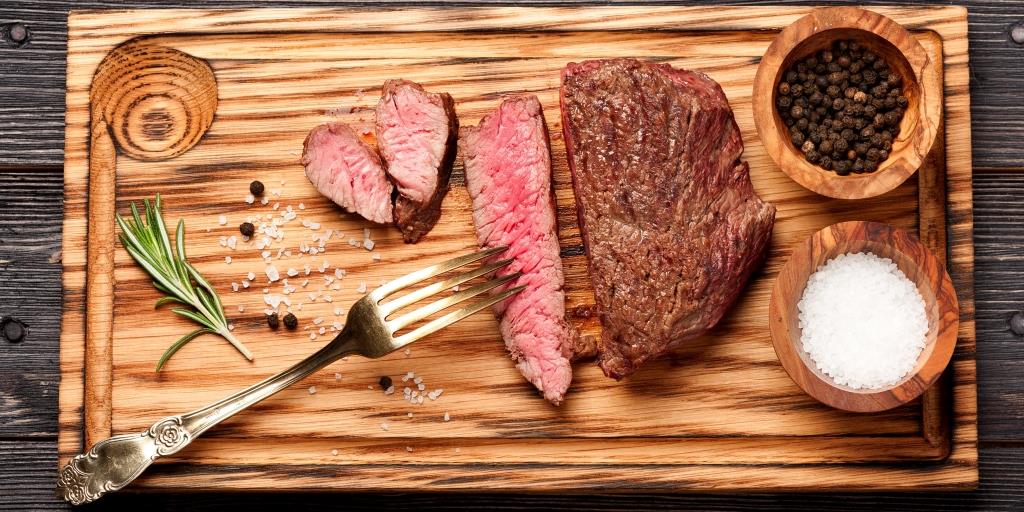Ours is a nation of unapologetic carnivores.
From ground chuck used for backyard burgers to dry-aged tenderloin medallions, beef is what’s for dinner … and lunch and breakfast. Thanks to improved ranching and production methods, we have even more reasons and ways to love every cut.
65 LBS.

Americans are getting that message. We are paying closer attention to the quantities we consume and demanding higher quality. In response, the meat industry is producing more organic, grass-finished, hormone-free beef—a win for ranchers, consumers and the environment. So, as it turns out, your red-blooded affection for red meat and your green-leaning conscience can coexist.
If it’s been awhile since you’ve perused your grocer’s meat department, it’s time to make a visit and see what you’ve been missing. To that end, we present this overview of America’s favorite protein, from the various cuts of beef to the best prep methods for each, plus a few helpful tips and hints sprinkled throughout. Go ahead—dig in.
Making the Grade

More about beef:
BEEF: Dressed to the Nines: What is a primal?
BEEF: What the Cut: The five major categories of cuts
BEEF: Cooking Methods: Good and better ways to prepare
BEEF: You are What You Eat Eats

